As we all know, the Spring Festival is very important to Chinese people.
In the past, people could not often have meat, rice or other delicious food. They could only eat these during the Spring festival. So every year they hoped that the Spring Festival would come soon. Now, although people's life is much better, and we can eat the delicious foods everyday. People still like the festival. Because most people can have a long holiday, and we are free to go on a trip or visit our friends or have parties with our family.
I like the Spring Festival very much. How wonderful it is!
The Spring Festival
The Spring Festival, also know as the lunar New Year, is the greatest traditional festival. It is usually a time between late January or early February, which means rest and relaxation between winter and spring after a year's toil, and means celebration as well. Before the Spring Festival, people clean their house, put red coupletson their gates, and set off firecrackers, according to fairy tale, for driving a demon, named Nian away. On the eve of the Spring Festival, a get-together banquet is a must, and the most popular food is Dumpling, which is supposed to bring good fortune. On the first day of the new year, everybody wears new clothes and greets relatives and friends with bows and congratulations wishing each other lucky during the new year.
Spring Festival
The New Moon on the first day of the new year-- the full moon 15 days later
Click here for more words about the Spring Festival
Chinese New Year starts with the New Moon(新月)on the first day of the new year and ends on the full moon(满月)15 days later. The 15th day of the new year is called the Lantern Festival(元宵节), which is celebrated at night with lantern displays and children carrying lanterns in a parade.
The Chinese calendar is based on a combination of lunar and solar movements. The lunar cycle(月运周期)is about 29.5 days. In order to "catch up" with the solar calendar the Chinese insert an extra month once every few years (seven years out of a 19-yearcycle). This is the same as adding an extra day on leap year (闰年). This is why, according to the solar calendar, the Chinese New Year falls on a different date each year.
New Year's Eve and New Year's Day are celebrated as a family affair, a time of reunion and thanksgiving. The celebration was traditionally highlighted with a religious ceremony given in honor of Heaven and Earth(万物), the gods of the household and the family ancestors.
The sacrifice to the ancestors, the most vital of all the rituals(仪式), united the living members with those who had passed away. Departed relatives are remembered with great respect because they were responsible for laying the foundations for the fortune and glory of the family.
The presence of the ancestors is acknowledged on New Year's Eve with a dinner arranged for them at the family banquet table. The spirits of the ancestors, together with the living, celebrate the onset of the New Year as one great community. The communal feast called "surrounding the stove" or weilu. It symbolizes family unity and honors the past and present generations.
The Origin of Chinese New Year
The Chinese New Year is now popularly known as the Spring Festival because it starts from the Begining of Spring (the first of the twenty-four terms in coodination with the changes of Nature). Its origin is too old to be traced. Several explanations are hanging around. All agree, however, that the word Nian, which in modern Chinese solely means "year", was originally the name of a monster beast that started to prey on people the night before the beginning of a new year.
One legend goes that the beast Nian had a very big mouth that would swallow a great many people with one bite. People were very scared. One day, an old man came to their rescue, offering to subdue Nian. To Nian he said, "I hear say that you are very capable, but can you swallow the other beasts of prey on earth instead of people who are by no means of your worthy opponents?" So, it did swallow many of the beasts of prey on earth that also harrassed people and their domestic animals from time to time.
After that, the old man disappeared riding the beast Nian. He turned out to be an immortal god. Now that Nian is gone and other beasts of prey are also scared into forests, people begin to enjoy their peaceful life. Before the old man left, he had told people to put up red paper decorations on their windows and doors at each year's end to scare away Nian in case it sneaked back again, because red is the color the beast feared the most.
From then on, the tradition of observing the conquest of Nian is carried on from generation to generation. The term "Guo Nian", which may mean "Survive the Nian" becomes today "Celebrate the (New) Year" as the word "guo" in Chinese having both the meaning of "pass-over" and "observe". The custom of putting up red paper and firing fire-crackers to scare away Nian should it have a chance to run loose is still around. However, people today have long forgotten why they are doing all this, except that they feel the color and the sound add to the excitement of the celebration.
Traditional New Year Foods
Probably more food is consumed during the New Year celebrations than any other time of the year. Vast amounts of traditional food is prepared for family and friends, as well as those close to us who have died.
On New Year's Day, the Chinese family will eat a vegetarian dish called jai. Although the various ingredients in jai are root vegetables or fibrous vegetables, many people attribute various superstitious aspects to them.
Other foods include a whole fish, to represent togetherness and abundance, and a chicken for prosperity. The chicken must be presented with a head, tail and feet to symbolize completeness. Noodles should be uncut, as they represent long life.
In south China, the favorite and most typical dishes were nian gao, sweet steamed glutinous rice(糯米)pudding and zong zi (glutinous rice wrapped up in reed(芦苇)leaves), another popular delicacy.
In the north, steamed-wheat bread (man tou) and small meat dumplings were the preferred food. The tremendous amount of food prepared at this time was meant to symbolize abundance and wealth for the household.
The 15-Day Celebration of Chinese New Year
The first day of the Lunar New Year is "the welcoming of the gods of the heavens and earth."Many people abstain from meat on the first day of the new year because it is believed that this will ensure long and happy lives for them.
On the second day, the Chinese pray to their ancestors as well as to all the gods. They are extra kind to dogs and feed them well as it is believed that the second day is the birthday of all dogs.
The third and fourth days are for the sons-in-laws to pay respect to their parents-in-law.
The fifth day is called Po Woo. On that day people stay home to welcome the God of Wealth. No one visits families and friends on the fifth day because it will bring both parties bad luck.
On the sixth to the 10th day, the Chinese visit their relatives and friends freely. They also visit the temples to pray for good fortune and health.
The seventh day of the New Year is the day for farmers to display their produce. These farmers make a drink from seven types of vegetables to celebrate the occasion. The seventh day is also considered the birthday of human beings. Noodles are eaten to promote longevity and raw fish for success.
On the eighth day the Fujian people have another family reunion dinner, and at midnight they pray to Tian Gong, the God of Heaven.
The ninth day is to make offerings to the Jade Emperor.
The 10th through the 12th are days that friends and relatives should be invited for dinner. After so much rich food, on the 13th day you should have simple rice congee and mustard greens (choi sum) to cleanse the system.
The 14th day should be for preparations to celebrate the Lantern Festival which is to be held on the 15th night.
参考资料:http://zhidao.baidu.com/question/37930224.html?si=1&wtp=wk
Spring Festival
As we know,the celebration of Spring Festival may commonly last for 7 days,which is higlighted as one of the symbols of traditional chinese culture.It's usually a time between late January or early February.Not only in china but in some other Asian countries like Singapore,Indonesia and Korea people also celebrate Spring Festival.
According to the usual,on the eve of the Spring Festival,a get together banquet is a must,and the most popular food is Dumpling,which is supposed to bring good fortune.People tend to get up early the frist day and visit neibours and relatives. However ,nowadays this part is being replaced by short message greetings.But i like Spring Festival.
我们都知道,一般庆祝春节都有7天,春节是中国文化传动节日的象征,而春节通常会在1月尾到2月头之间.不仅仅在中国会过春节,而且在其他一些亚洲地方,如:新加坡,印度尼西亚和韩国的人们也会庆祝春节.根据惯例,在除夕夜,聚在一起吃大餐是一定的.最通俗的食物是饺子,饺子被寓为能够给我们带来好运气.人们需要在新年的第一天早起然后去拜访亲戚和邻居.然而,现今这种形式已经被发一条问候的小短信替代了.但我喜欢过春节.
希望帮到你.这是我写过的作文.要修改可以M我。

Chinese Spring Festival celebrating the end of winter and the warmth of spring.It began in the last day of the lunar year,end in the 15th day of lunar New Year,also is the Lantern Festival.During the Spring Festival,people use red lantern and Spring Festival couplets decorate a house,put on all kinds of colored clothes,often visit friends and relatives or together eat dumplings,fish,meat and other delicious food.The children are looking forward to receiving red envelope money,and together they play each other the fireworks,with happy.Street with dragon and lion dance and some other carnival activities,CCTV will held the grand Spring Festival gala.
翻译:中国的春节庆祝冬天的结束和温暖春天的来临.它开始于农历年的最后一天,结束于农历正月十五,也就是元宵节.在春节期间,人们用红灯笼和春联装饰房子,穿上各式各样的彩色衣服,经常拜访亲戚朋友或聚在一起吃饺子、鱼、肉和其他美味的食物.孩子们盼望着收到红包的压岁钱,他们一起放烟花,相互玩的跟开心.大街上有舞龙、舞狮和其他一些狂欢活动,中央电视台会举行盛大的春节联欢晚会.
The Spring Festival
The Spring Festival, Chinese New Year,is the most important festival for all of us. All family members get together on New Year'Eve to have a big meal.At the same time, everyone celebrates to each other.At about 12 o'clock,some parents and children light crackers.The whole sky is lighted brightly. We may watch the fireworks excitedly.How busy it is!
On the first early moring of one year, many senior citizen get up early and they stick the reversed Fu or hang some couplets on the front door. Some house's windows are sticked on red paper cutlings.
The Chinese New Year lasts fifteen days. So during the fifteen days, we always visit our relatives from door to door. At that time, children are the happiest because they can get many red packets form their parents,grandparents, uncles, aunts and so on. The last day of the Chinese New Year is another festival. It names the Lantern Festival.
So the Chinese New Year comes to the end.
春节英文作文100字、春节英文作文100字,就介绍到这里啦!感谢大家的阅读!希望能够对大家有所帮助!
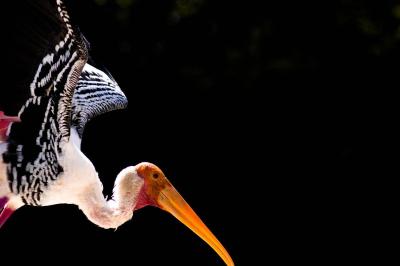
做比萨好词好句,急∽ 披萨好,披萨秒,大家都来学披萨,好吃有健康 表示披萨很好吃的成语 1、珍馐美馔拼音:[zhēn xiū měi zhuàn]基本解释:珍贵而味道好的饮食,亦作“珍羞美味”。分开解释:①馐:滋味好的食物,好吃的食物;②馔...
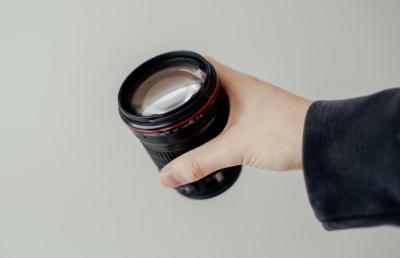
介绍一个民间故事作文300字 介绍一个民间故事作文:狄青是宋朝的一员大将,他出身低微,脸上一直留着当士兵时刺下的符号。当时,仁宗皇帝说,你已经是朝廷大将了,可以把脸上的印记去掉。但狄青不肯,说是留着它可以激励土气!一次,狄青带大军出征侬智高...

形容婆婆非常好的句子哪些 1、我的婆婆就是这样一位善良、慈爱、无私奉献的长辈。作为儿媳的我,为今生能遇到这样一位,象亲生母亲一样疼爱呵护自己的好婆婆感到幸运,这是上天赐予我的缘份,赐予我的福份啊!如果真的有来生,我还甘愿做婆婆的儿媳妇。2、...

祝老夫妻幸福的话 祝福两老白头偕老!永结同心!延年益寿!健康长寿! 赞美晚年生活的诗或者老人的诗 赞美晚年生活的诗或者老人的诗有:东晋·陶渊明《饮酒》、魏·曹操《龟虽寿 》 、唐·孟浩然《题大禹寺义公禅房》、唐·王维《夏日过青龙寺谒操禅师》...

鼓励员工风雨无阻的出勤的话语 迟到毁一生,早退穷三代,二者皆不沾,必成高富帅 风雨无阻下句是什么 风雨无阻是一个汉语成语,并无特定的上下句。风雨无阻意思是不受刮风下雨的阻碍。比喻做事没有阻碍,畅通无阻。出自明代冯梦龙《醒世恒言·黄秀才徼灵玉...

最近有一个鲜为人知的事情,那就是我有了个师傅。师傅是很优秀的,虽然只是三年级的。但是在作业帮比很多人混的都要好,粉丝就像脱缰的野马,速度只增不减。张三坐不住了,说:“不要看粉,要看实力!”其实啊,师傅也是很有实力的,每次审稿的排名都在前列。...

“天地浩大,任我倾注豪赌。江山沉浮,独独与你棋局满盘皆输。纵有万人举樽贺,我的杯却为你而空。秦时明月,唐风宋韵,都想拿来为你环佩叮咚。这锦绣河山,怎敌有你,百媚千红。”我是山海的君王鱼虾由四方赶来朝拜飞禽走兽皆慕名而来予我大海的蔚蓝与深山的...

老师,这个职业让我们这些莘莘学子真是又敬佩又敬畏,尤其是我们班的那一位老师,真让我们又爱又恨。他在上课时的那种威严,犹如古代的君主一般,而我们只是可怜的被“镇压”的份了。是不是觉得有点太夸张了呢?那就来听听我们的“血泪史”吧!班主任——秦始...

巨大的落地窗,将阳光布满这个小小的休息室,透明的玻璃茶几上,白色的棉花糖无规则地散落着,可又像一种字符。慵懒地坐在沙发上的你,背后是和煦的阳光,你被阳光紧紧包裹着。你扬起的嘴角,弯着的眼眸,桀骜不驯的白色头发,你比阳光更加刺眼;突然张开的双...

秦始皇,在下最敬佩的历史人物之一,世人皆道他是个暴君,可是在下却不这么觉得。世人皆道呀,秦始皇残暴昏庸又无能,但,如果不修建长城,匈奴就会闯进来,杀光这里的百姓,到时候生灵涂炭,那又该如何?你说为什么他不去争召呢?因为他明白,没几个人会为国...

擦玻璃的好句 擦玻璃的好句。同学们在擦玻璃。大家都非常的认真,而且也很仔细。就是像在擦拭一件艺术品一样。 姐姐擦玻璃看图写句子 今天,姐姐提出要擦玻璃。我听完以后很想参加,可是作业还没写完。最后我决定写完作业以后再擦玻璃。不一会儿我就写完了...
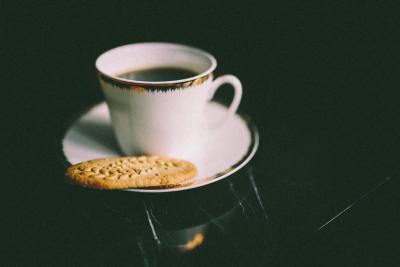
初中生作文《我的老师》800字 “老师”——是人类灵魂的工程师,她们哺育了一棵又一棵稚嫩的幼苗,培养了一批又一批出色的人才。在她们那精心呵护之下,我们健康、活泼的成长。在那么多的老师中,给我印象最深的却是她——教了我半个学期的数学老师——陈...
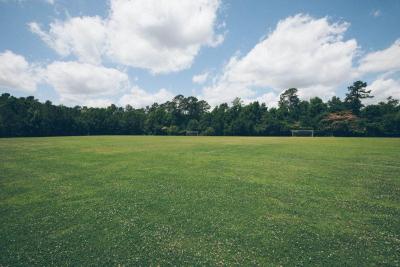
重阳节唯美的句子 1、秋天的重阳不公是春光胜似春光,时值霜天季节,却格外显得神采奕奕。祝您老重阳节快乐,健康长寿! 2、浓郁的茱萸在峰顶遥望友人的容颜,重阳的糕点融化亲人浓浓的柔情,菊花的美酒浸润心底思念的记忆,团圆和乐的心愿似飞箭直指心...
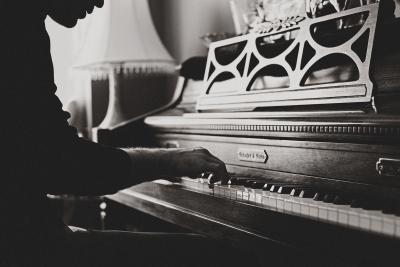
桃花与垂丝海棠作文 垂丝海棠生长过程以前的我,站在新一年的门口,高兴得不得了,恨不得马上就越过这个门槛。我总是在新年以前好长一段时间就开始盼望:“快点儿元旦,快点儿过年,快点儿元宵节……那样我就可以好好玩一玩了。”那时的我,整天没事儿做,周...